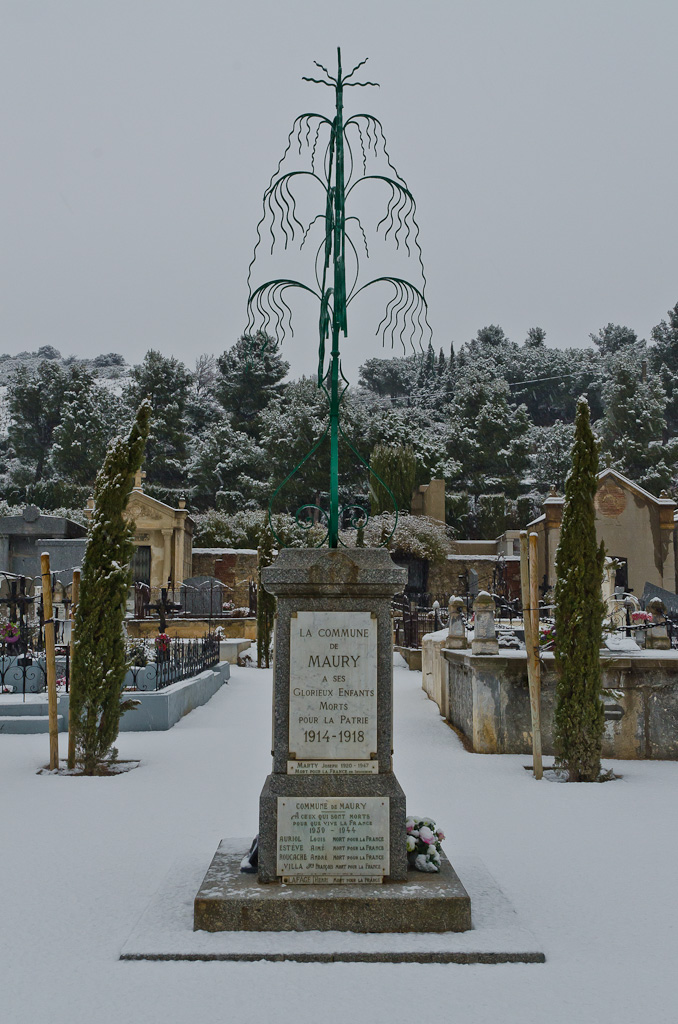World War II is still present here. Every village has a memorial to those who died in combat, most built after WWI and updated with names from II, and in some cases, Indochina and Algeria. You still meet people who fought in the war. The village history published in the annual report focuses on the years of the war and talks about the occupation, collaborators and the resistance. It speaks of driving out the collaborationist town government to be replaced by one led by the resistance.

There’s a wonderful little novel by Vercors, the nom de guerre of the French writer Jean Bruller, called The Silence of the Sea that perfectly captures the horror of war without ever relating a battle. A German officer is assigned to live with a French family in a small village in the south. The family consists of an uncle and his niece. The officer speaks French and is enamored of French culture. The family will not speak to him or acknowledge his presence. Every evening he comes to see them and talks of his love for France especially the literature and his hope that the two cultures will be married and Europe will be at peace. He speaks of this with total sincerity and it makes me queasy to read it.
The family never responds but they listen. The book consists almost entirely of physical descriptions of the three characters; how their bodies reflect their thoughts and the subtle changes they each endure.
When the officer returns from leave in Paris, everything changes. The uncle, sensing his niece’s unspoken attraction to the German, invites him in, “Entrez, monsieur” are his first and only words of dialogue in the entire book. The officer is changed. He has seen his friends and fellow officers in Paris and learned the plan is not marriage but annihilation. The German command does not share his love for French culture and intends to destroy it. We know this, of course, in hindsight, but it’s shocking to realize the officer was sincere. He genuinely believed in the potential marriage of German music and French literature and was hoping for the human counterpart, marriage to the French niece. As for the girl, there are silent signs along the way that she believed he was sincere or maybe just desperately needed to believe it.
Was he an outlier, the exception that proves the rule? Vercors makes no attempt to apply his story on a larger scale. We have just the three characters. The book ends with the officer explaining they would not see him again as he had volunteered for the eastern front.
I’m thinking about why this book touched me so much. The prose is very simple and I was able to read it in French, but more importantly, I think, is that I read it here, where it is set and where the war is still remembered. Literature of the time is still read, memorials are still seriously observed, memories are still alive. It’s different here.
